https://youtu.be/JO-fWBZ1Q5Y
From Year Zero to Success in America. Her Biography and experience in community development qualifies her well as Executive Director of IKARE and the National Khmer Legacy Museum.
My name is Sokunthea Bentley. I resettled in the United States as a refugee at the age of seven. In mid-April 1975, my father was murdered at the beginning of the Cambodian genocide, led by Pol Pot and the Khmer Rouge regime. The Khmer Rouge killed him because he was in the military, and he had a particular set of skills that was deemed threatening to the revolution. My mother became a single parent and raised five young children since his death at 30 years old. My story is similar to other families who have three to five children, and lost their fathers during this atrocity.
Pol Pot was a name that we all learned not to forget for many generations to come. The regime beared the name Khmer Rouge (literal translation: Red Cambodian). From 1975-1979, his regime closed the borders of Cambodia preventing refugees from going to Thailand, Vietnam, or Laos. During these years, two million Cambodians died. Pol Pot and the Khmer Rouge set the entire country to Year Zero on April 17, 1975.
During the Vietnam War, from the late 1960s to the mid-1970s, the North Vietnamese troop were seeking sanctuary at their border of Cambodia. President Richard Nixon and Henry Kissinger secretly ordered a carpet bombing campaign throughout Northeast Cambodia, which decimated 600,000 plus Cambodian civilians. President Nixon ordered the bombing without consent of Congress. The United States’ plan was to kill off North Vietnamese troops, using Cambodia as a route to get to South Vietnam. Pol Pot saw an opportunity to use the American bombing to persuade civilians to leave their homes, so their homes would not be bombed by the United States. There was a mass exodus of people leaving the cities. The Khmer Rouge soldiers were armed with AK-47s, forcing people to leave their homes. They set up evacuation routes and channeled everyone to the countryside. After everyone abandoned their homes and headed toward the countryside, the Khmer Rouge destroyed nearly all buildings and landmarks. This was Pol Pot’s opportunity to eliminate the modern world and abolish all foreign influences. He wanted to revolutionize Cambodia into an agrarian socialist state (peasants’ society, and agriculture utopia).
From 1975 to 1979, this is called Year Zero, my siblings and I were very young. Our ages were two, three, five, seven, and nine. I was three years old and the second to youngest. All families were sectioned off and lived in a perimeter that was controlled by armed soldiers. Each community had sections and they were forced to work in labor camps. Since my two-year-old brother and myself were unable to work in the labor camps because of our young ages, we were placed in a home with our grandparents as our caretakers, and had to be watched while everyone else (who were of age) in my family were separated according to age and gender. The labor camps were far away from each other, therefore, we were not able to see our family members. My mother’s camp area was approximately a two-day walk. She was allowed visitation rights every two to three months. If she came to see us without permission from the section leader, she could be sentenced to death.
My family and I were very fortunate. My siblings and I along with my mother survived the genocide. When Cambodia was liberated by the Vietnamese soldiers in late fall of 1979, my older siblings reunited with me and my youngest brother at the facility we were at. We later journeyed on foot to our original home. As we travelled home, we saw dead bodies everywhere. We were famished and had not eaten a nutritious meal in years. We were skin and bones. We found out during the trek that some villagers had more to eat than others. We asked them to help us, and they shared their food and gave us white rice porridge soup, which made us very happy because the Khmer Rouge starved us for four years.
I lived in the second largest city in Cambodia called Battambang. Everyone took the same journey back home. If someone did not show up, it was assumed they had been killed off by the Khmer Rouge. Everyone who survived was reunited. When we came to our old home, it was destroyed and only the foundation and half of the walls were still standing. We tarped the roof and started to rebuild our home.
We stayed in our old home, hoping our father also survived the genocide, and if he did, he would meet us there. Sadly, he never came to meet us at our home. We had no resources, rice, or anything. We heard that many people left for a camp that had been set up at the Thailand border and that we could find food there. When we heard of the news, we decided make a run to the border. We had to make the journey at night because if we made the trek during the day it would be too risky and we may get shot by the soldiers. During our escape, we had no belongings with us. The only item we had was our clothing that we wore. We rummaged on foot for 5 nights through the jungle. We arrived at the Thailand border camp, where we were greeted with food and given a blue tarp with poles to set up our living quarters. We were given rice, fish, and water. To us, we found heaven. We stayed at the camp for about nine months and during the ninth month, our family became sponsored to come to the United States (and later resettled in Texas). There were ten families in our group who were sponsored by a church group that placed us in a YMCA camp facility.
Before we came to the United States, we briefly settled in the Philippines and were educated for three months on basic life skills. We learned how to use the shower; we especially had to learn how to use the toilet (we had none in Cambodia). We also learned some basic English. During our time in the Philippines, we were introduced to the Salvation Army, who taught us to read the Bible and to sing religious songs. These avenues gave us a chance to praise God, which we could finally call our own. Through this induction, we became Christians during this hard time. When we landed in Texas, we were greeted by church parishioners; they clothed and helped us find schools so we could get a good education. My brothers and I were the first Asians in a small school in a suburb of Texas. They had no idea how to communicate with us and vice versa. One thing for certain, math is a universal language – we were good in that subject. We spoke hardly any English, but would do better than everyone in math. School was fun to us. We had food to eat and saw other kids smiling and laughing. We forgot everything we left behind in Cambodia and were certain we were going to succeed in this country. We stayed in the YMCA camp until we found an apartment. We could not afford a one bedroom, so we shared the one bedroom with four other families. Seventeen people were living in that one bedroom apartment. Two years passed, we saved money and were able to move out on our own and found a one-bedroom apartment in the same complex that house just the five of us. The church gave us clothes and necessities to live. The families who were members of the church gave my mom a job to clean their houses so we could have income. They welcomed us the most when we arrived in the United States.
A few years later, we found out that my uncle had gotten sponsored to Minnesota. He told us that Minnesota had the best educational system. My mom agreed to leave Texas for Minnesota. All of her children loved the snow, and her decision was supported by all of us.
I went to Humboldt High School in West St. Paul, Minnesota. For college, I went to Hamline University also located in in St. Paul. I received a Bachelor of Arts Degree in Business Administration and started a small business, a translation company, immediately after my business project for my entrepreneur class. The business was called Asian Translation, which was based in Minneapolis. A year later, we were not only offering interpretations/translations for Asian languages, but for other languages such as Russian, Somalia, etc. We later changed the name to International Translation Bureau (ITB). We were translating textbooks and bibles, as well as bible studies sessions. We were sending interpreters to courts, to companies that hired limited English-speaking workers, to law firms, to those companies whose employees filed workers’ compensations. We became one of the State of Minnesota’s preferred vendors. To this day, ITB remains in business offering limited services, and currently my youngest brother is running the business. ITB has been in business for over twenty years.
I transitioned to work in the non-profit arena for the Centre for Asians & Pacific Islanders for two years as the Associate Director in order to help refugees and immigrants acculturate and resettle in Minnesota. I embarked on a career at Hmong American Partnership in early 2008 and became their Operations Director. I became the Vice President of Administration and Strategic Development in 2015. A year later decided to take a break, spending time with my family for one year. I and am now the Director of Human Resources at North Central University.
I am happily married to Ishmael Bentley and have two wonderful daughters: Sayla, twenty-years-old; and Valentina, eight-years-old. Our family resides in Edina, Minnesota. My husband is happily employed, working his dream career and running his own academy in St. Louis Park. He teaches Brazilian Jiu-Jitsu at our business called M-Theory Martial Arts.
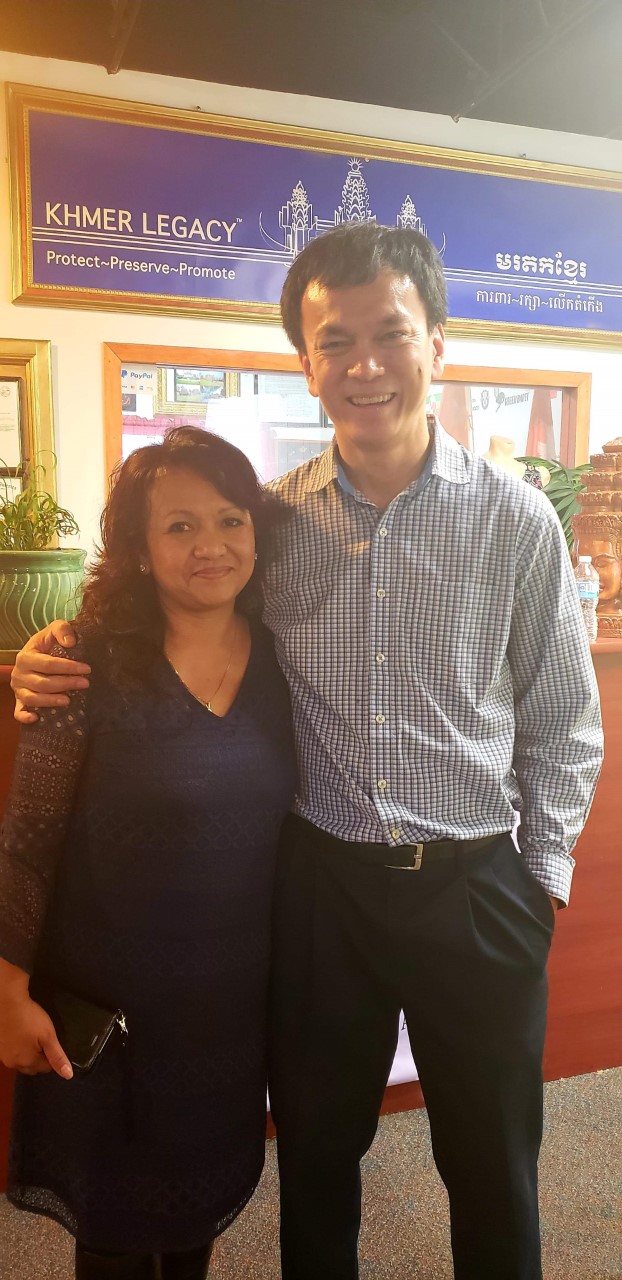
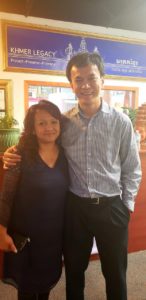
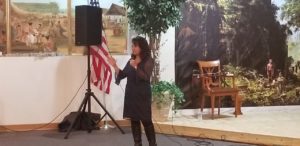
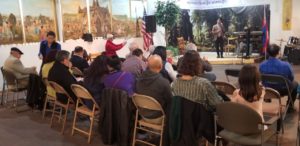
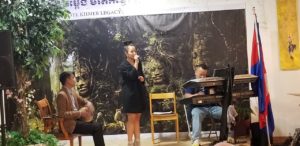
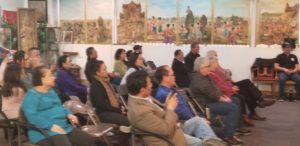
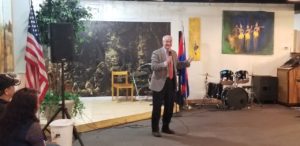
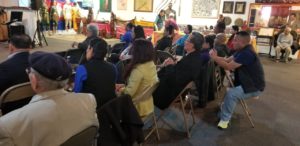
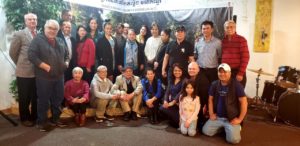
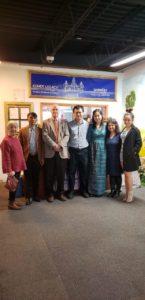
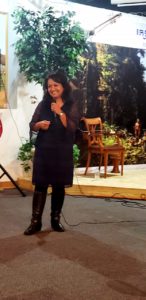
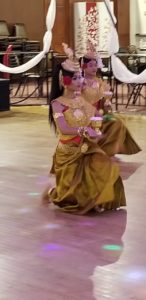
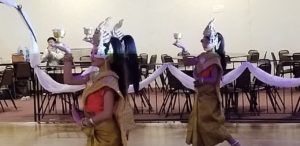
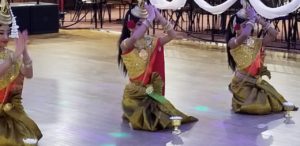
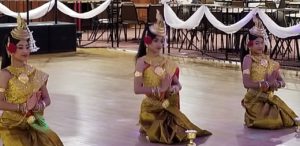
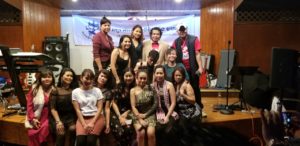
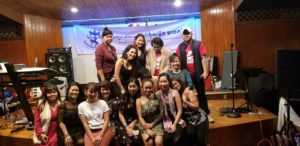
One thought on “Meet IKARE’s new Executive Director”
Dear SOKUNTHEAR,
Congratulation for you to become Executive Director of IKARE. I only become member of IKARE from Sydney, Australia since 2014. Similar to your late father I was LON NOL Ex-First Lieutenant ANK, OTS/3 from (EMK) Ecole Militere Khmer with service number 77 404.(1970-1975).
When POL POT and Vietnamese infiltration disguise call them self ANGKA LEU regime took over on 17th April 1975 I escaped to Surin in Thailand and formed a guerrilla resistant fighter called RECH SEI until Vietminh (NVCA) and Vietcong invaded Cambodia, REACH SEI went to France to invite Samdech Bovor Setha Son San to form the KPNLF toghether and fought hard against YUON invader for almost 18 years until I got promoted to guerrilla Lieutenant General in the jungle of Cambodian-Thai border from 1976 to 1993..
I pray God to bless IKARE with new Executive Director.
Regards
WOODHY CHAMRON
Ex-Lt. Gen. Reach Sei guerrilla commander (1970-1993)
Ph: +61 470 283 344
E: woodhy@gmail.com
F: woodhy chamron